White Goods Recycle Borehamwood
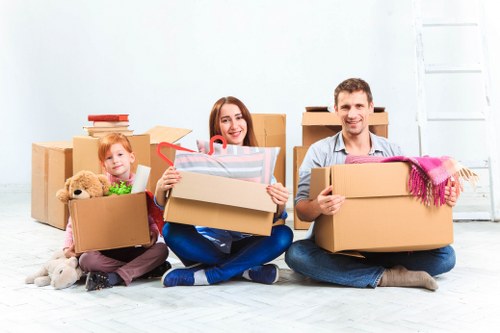
Recycling white goods in Borehamwood is an essential service for both the environment and the local community. White goods, such as refrigerators, washing machines, and ovens, take up valuable space in landfills and can harm the environment if not disposed of properly. By recycling these appliances, residents of Borehamwood can contribute to a cleaner, more sustainable future.
When you choose to recycle your white goods, you ensure that valuable materials like metals and plastics are recovered and reused. This not only reduces the need for raw materials but also minimizes the energy consumption associated with manufacturing new products. Additionally, recycling helps decrease greenhouse gas emissions, which are a significant contributor to climate change.
Borehamwood offers several services and facilities dedicated to white goods recycling, making it convenient for residents to dispose of their old appliances responsibly. Whether you're upgrading your kitchen or simply decluttering your home, recycling your white goods is a step towards a greener Borehamwood.
The Importance of Recycling White Goods
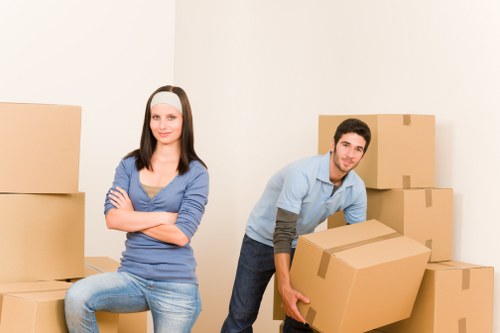
Recycling white goods is more than just a way to get rid of old appliances. It plays a crucial role in environmental conservation and resource management. White goods often contain materials that can be harmful if they end up in landfills, such as refrigerants and other chemicals. Proper recycling ensures these substances are handled safely.
Moreover, recycling contributes to the circular economy by turning waste into valuable resources. Metals like steel and aluminum can be melted down and reused in new products, reducing the demand for mining and lowering the overall environmental footprint. This cycle of reuse helps preserve natural resources for future generations.
In addition to environmental benefits, recycling white goods can have economic advantages. It creates job opportunities in the recycling and manufacturing industries and can even reduce costs for consumers by lowering the price of new goods made from recycled materials.
How to Recycle White Goods in Borehamwood
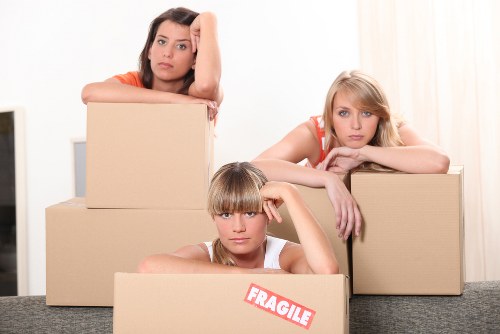
Local Recycling Centers
Borehamwood is equipped with several recycling centers that accept white goods. These centers are strategically located to provide easy access for residents. Before heading to a recycling center, it's advisable to check their specific guidelines and operating hours.
Collection Services
For larger appliances or for those who prefer not to transport their white goods, Borehamwood offers collection services. These services can be arranged through local recycling providers and may involve a fee depending on the size and type of appliance.
Manufacturer Take-Back Programs
Many manufacturers have take-back programs that allow consumers to return old appliances when purchasing a new one. This ensures that the product is recycled responsibly and aligns with the manufacturer’s sustainability goals.
Benefits of Recycling White Goods
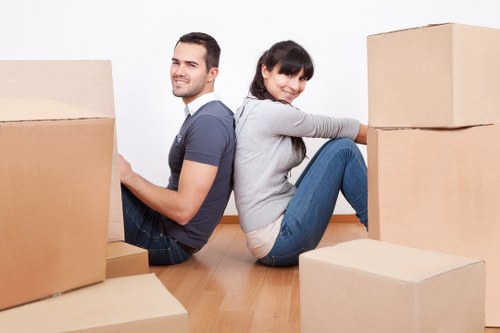
Recycling white goods in Borehamwood offers numerous benefits:
- Environmental Protection: Reduces landfill waste and minimizes pollution.
- Resource Conservation: Recovers valuable materials for reuse.
- Energy Savings: Lowers energy consumption by reusing materials.
- Economic Growth: Creates jobs and supports local industries.
- Community Health: Prevents harmful substances from contaminating the environment.
These benefits collectively contribute to a healthier, more sustainable Borehamwood, making recycling a win-win for everyone involved.
Steps to Recycle Your White Goods
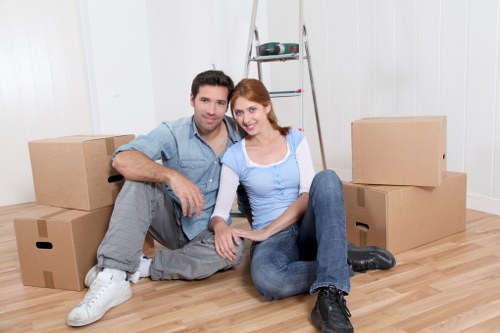
1. Identify the Appliance
Determine which white goods you need to recycle. Common items include refrigerators, washing machines, dishwashers, and ovens.
2. Prepare the Appliance
Disconnect the appliance and remove any detachable parts. Ensure that it is safe to handle and transport.
3. Choose a Recycling Method
Select the most convenient recycling option for you, whether it's dropping off at a local center, arranging a collection, or utilizing a take-back program.
4. Transport the Appliance
Take the appliance to the selected recycling facility or await the collection service. Ensure it is handled properly during transportation to prevent any damage.
5. Confirm Recycling
Verify that your appliance has been accepted and will be recycled responsibly. Some services provide certificates of recycling for your records.
Costs and Funding for White Goods Recycling
The cost of recycling white goods in Borehamwood can vary depending on the type and size of the appliance. Some recycling centers may offer free disposal services, especially for essential appliances like refrigerators and washing machines. However, for larger or more complex items, there might be a nominal fee.
Additionally, there are funding options and incentives available to help offset the costs. Local councils often provide grants or subsidies for recycling projects, and some manufacturers include recycling fees in the price of new appliances. It's worth researching these options to make recycling more affordable.
Investing in recycling not only benefits the environment but can also provide financial relief. By taking advantage of available funding, residents can ensure their old appliances are disposed of responsibly without breaking the bank.
What Counts as White Goods?
White goods refer to large household appliances that are typically finished in white enamel or metal. These include:
- Refrigerators and freezers
- Washing machines and dryers
- Dishwashers
- Ovens and stoves
- Microwave ovens
- Air conditioners
These appliances are essential for daily living but can no longer be used effectively once they break down or become outdated. Proper recycling ensures that the materials within these appliances are reused and that any harmful substances are safely managed.
Safe Disposal and Data Privacy
When recycling white goods, especially those with electronic components, safety and privacy are important considerations. Many appliances contain sensitive information, such as smart refrigerators that store personal data or smart ovens with usage patterns.
To protect your privacy, it’s essential to wipe any digital data from these appliances before recycling. This might involve resetting the appliance to factory settings or physically destroying storage media. Always consult the recycling provider for specific instructions on handling electronic data.
Additionally, proper disposal ensures that hazardous materials, like refrigerants or batteries, are managed correctly to prevent environmental contamination and health risks.
Common White Goods to Recycle
Many household appliances qualify for recycling. Some of the most common white goods include:
- **Refrigerators:** Essential for food storage, but contain refrigerants that must be handled carefully.
- **Washing Machines:** Large and heavy, these appliances often require special disposal methods.
- **Dishwashers:** Compact yet complex, dishwashers contain various materials suitable for recycling.
- **Ovens and Stoves:** These heat-producing appliances have metal components that can be reused.
- **Microwave Ovens:** Smaller appliances that still contain valuable materials for recycling.
- **Air Conditioners:** Often contain both electronic parts and refrigerants needing safe disposal.
By recycling these common white goods, Borehamwood residents can significantly reduce their environmental impact and support local recycling initiatives.
Recycling Process in Borehamwood
The recycling process in Borehamwood involves several key steps to ensure that white goods are handled responsibly:
- Collection: Appliances are collected from residents via drop-off points or collection services.
- Sorting: Items are sorted based on type, materials, and recyclability.
- Processing: Appliances are dismantled, and materials like metals, plastics, and glass are separated.
- Recovery: Reusable materials are processed and sent to manufacturers for creating new products.
- Disposal: Non-recyclable components are disposed of in an environmentally friendly manner.
This systematic approach ensures that recycling efforts are efficient and effective, maximizing the recovery of valuable materials while minimizing environmental harm.
Environmental Impact of White Goods Recycling
Recycling white goods has a significant positive impact on the environment. By diverting appliances from landfills, we reduce soil and water contamination and decrease greenhouse gas emissions. The recycling process also consumes less energy compared to producing new materials, which further lowers carbon footprints.
Additionally, proper recycling helps mitigate the depletion of natural resources. Metals like steel and aluminum, commonly found in white goods, are finite resources. Recycling ensures their continued availability for future use, promoting sustainability.
Overall, the environmental benefits of recycling white goods contribute to a healthier ecosystem and support global efforts to combat climate change.
Local Regulations and Compliance
Borehamwood adheres to strict local and national regulations regarding the recycling of white goods. These regulations ensure that recycling practices meet environmental standards and that hazardous materials are handled safely.
Residents should be aware of their responsibilities when recycling appliances, including proper preparation and adherence to recycling guidelines. Non-compliance can result in penalties and environmental harm.
By following these regulations, Borehamwood maintains a high standard of recycling, ensuring that community efforts align with broader environmental goals.
Top Recycling Centers in Borehamwood
Borehamwood boasts several top-notch recycling centers dedicated to white goods. These centers are equipped with the latest technology to efficiently process and recycle large appliances.
Some of the most reputable centers include:
- Borehamwood Recycling Hub: Offers comprehensive recycling services for all types of white goods with convenient drop-off hours.
- Green Earth Recycling: Known for its eco-friendly practices and commitment to resource recovery.
- EcoCycle Borehamwood: Specializes in the safe disposal of appliances containing hazardous materials.
- Renew Recycling Center: Provides both collection and processing services, ensuring maximum material recovery.
These centers make recycling accessible and efficient, supporting Borehamwood's sustainability initiatives.
Community Initiatives and Support
The Borehamwood community actively participates in recycling initiatives, fostering a culture of sustainability and environmental responsibility. Local organizations and councils run campaigns to educate residents about the importance of recycling white goods and provide resources to facilitate the process.
Workshops and informational sessions are regularly held to guide residents on how to prepare appliances for recycling and understand the environmental benefits. Community support ensures that recycling efforts are widespread and effective.
Additionally, partnerships with local businesses and manufacturers help expand recycling capabilities and improve the overall efficiency of white goods recycling in Borehamwood.
Innovations in White Goods Recycling
Advancements in recycling technology have enhanced the efficiency and effectiveness of white goods recycling in Borehamwood. Innovations such as automated sorting systems, improved material separation techniques, and energy-efficient processing methods have revolutionized the industry.
These technological improvements enable recycling centers to handle larger volumes of appliances while maximizing material recovery rates. Enhanced accuracy in sorting ensures that recyclable materials are not contaminated, increasing their value and usability in new products.
Continuous research and development in recycling technology promise even greater efficiency and sustainability in the future, further solidifying Borehamwood's position as a leader in white goods recycling.
Tips for Effective White Goods Recycling
Maximizing the benefits of white goods recycling requires thoughtful preparation and adherence to best practices. Here are some tips to ensure effective recycling:
- Clean Appliances: Remove all food, debris, and personal items from appliances before recycling.
- Disconnect Safely: Ensure appliances are unplugged and safely disconnected from any power sources.
- Remove Doors and Shelves: Taking off doors, shelves, and other removable parts can make transportation easier.
- Check for Hazardous Materials: Inform the recycling center if the appliance contains refrigerants or other hazardous substances.
- Plan Transportation: Arrange for appropriate transportation to prevent damage during the move.
Following these tips helps streamline the recycling process and enhances the overall effectiveness of white goods recycling efforts in Borehamwood.
Understanding the Recycling Process
Understanding how white goods are recycled can help residents appreciate the importance of proper disposal. The recycling process typically involves several stages:
- Collection: Appliances are gathered from drop-off points or through collection services.
- Disassembly: Basic dismantling removes easily recoverable parts like doors and shelves.
- Material Separation: Advanced machinery separates metals, plastics, and other materials.
- Processing: Separated materials are processed for reuse, which may include melting metals or shredding plastics.
- Repurposing: Recycled materials are used to manufacture new products, completing the recycling loop.
Each step is crucial for ensuring that materials are efficiently and safely recycled, contributing to environmental sustainability.
Recycling vs. Repurposing
While recycling involves breaking down appliances into their constituent materials for reuse, repurposing focuses on finding new uses for old appliances without significant alteration. Both approaches play a role in reducing waste and promoting sustainability.
Repurposing can extend the life of appliances and delay the need for recycling. For example, an old washing machine can be converted into a planter or a shelf. These creative solutions not only reduce waste but also add unique elements to homes and gardens.
However, recycling remains a more comprehensive method for handling white goods, especially when appliances are no longer functional or safe to use. Combining both recycling and repurposing strategies can maximize environmental benefits and resource conservation in Borehamwood.
Challenges in White Goods Recycling
Despite the benefits, recycling white goods comes with its own set of challenges. These include:
- Transportation Costs: Moving large appliances can be expensive and logistically challenging.
- Lack of Awareness: Some residents may not be aware of recycling options or the importance of proper disposal.
- Complexity: Handling hazardous materials and disassembling appliances requires specialized knowledge and equipment.
- Regulatory Compliance: Adhering to local and national regulations can be intricate and time-consuming.
- Market Fluctuations: The value of recyclable materials can vary, affecting the economic viability of recycling programs.
Addressing these challenges requires coordinated efforts between the community, local authorities, and recycling providers to ensure that white goods recycling remains efficient and effective in Borehamwood.
Future of White Goods Recycling in Borehamwood
The future of white goods recycling in Borehamwood looks promising, with ongoing advancements in technology and increasing community engagement. Plans include expanding recycling facilities, enhancing collection services, and promoting education campaigns to raise awareness.
Innovative solutions, such as automated sorting and improved material recovery processes, will further streamline recycling operations. Additionally, collaborations with manufacturers aim to implement more comprehensive take-back programs, making it easier for residents to recycle their appliances.
Continued investment in recycling infrastructure and community initiatives will ensure that Borehamwood remains at the forefront of sustainable practices, setting an example for other regions to follow.
Nearby Areas to Borehamwood for White Goods Recycling
Borehamwood is surrounded by several areas that also offer white goods recycling services. These nearby communities benefit from similar facilities and initiatives, making it easier for residents to access recycling options.
- Elstree: Just a few miles from Borehamwood, Elstree provides comprehensive recycling services and hosts regular community recycling events.
- Radlett: Known for its green spaces, Radlett offers convenient recycling drop-off points and collection services for large appliances.
- Bushey: With multiple recycling centers, Bushey ensures that residents have easy access to white goods recycling facilities.
- Carpenders Park: This nearby area features eco-friendly recycling programs and supports local sustainability initiatives.
- Hertford: Hertford's recycling centers are well-equipped to handle a variety of white goods, ensuring safe and efficient disposal.
- Watford: A larger town with extensive recycling infrastructure, Watford supports Borehamwood residents with additional recycling options.
- Chorleywood: Chorleywood offers specialized recycling services for electronic components within white goods, promoting safer disposal practices.
- Northwood: With a focus on community engagement, Northwood provides educational resources and recycling services for white goods.
- St Albans: Known for its historic charm, St Albans also prioritizes modern recycling solutions for white goods.
- Potters Bar: Potters Bar's recycling facilities are equipped to process large appliances efficiently, supporting the wider region.
Conclusion
Recycling white goods in Borehamwood is a vital practice that benefits the environment, conserves resources, and supports the local economy. By understanding the importance of recycling, utilizing available services, and overcoming challenges, Borehamwood residents can make a significant impact on sustainability efforts.
With dedicated recycling centers, community initiatives, and ongoing technological advancements, Borehamwood is well-equipped to handle the recycling of white goods efficiently and responsibly. Embracing these practices ensures a cleaner, greener future for all.
Frequently Asked Questions
1. What are white goods?
White goods refer to large household appliances such as refrigerators, washing machines, dishwashers, ovens, and air conditioners.
2. How can I recycle my old refrigerator in Borehamwood?
You can recycle your old refrigerator by taking it to a local recycling center, arranging a collection service, or utilizing a manufacturer’s take-back program.
3. Is there a fee for recycling white goods in Borehamwood?
The cost varies depending on the type and size of the appliance. Some recycling centers offer free disposal for essential appliances, while others may charge a nominal fee.
4. What materials are recovered from recycled white goods?
Metals like steel and aluminum, plastics, glass, and sometimes electronic components are recovered and reused in new products.
5. Are there any grants available for recycling white goods?
Yes, local councils and recycling programs sometimes offer grants or subsidies to help offset recycling costs. It’s advisable to check with local authorities for available funding options.